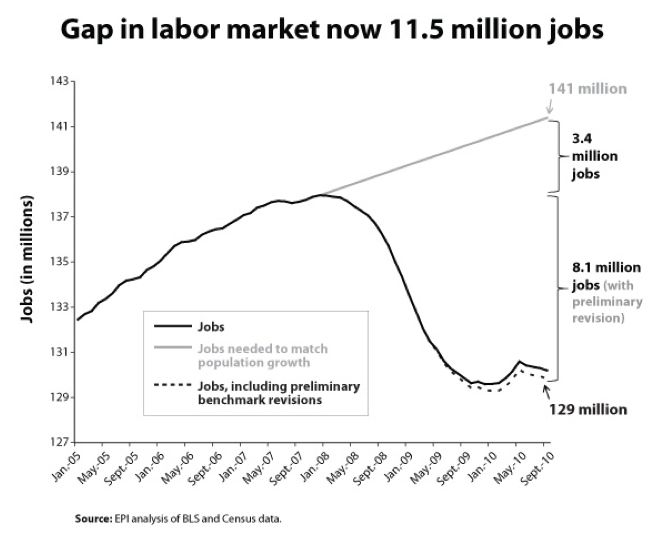The public option, never anything more than a Trojan horse type of diversion from single payer, is so lame that as of now it can not pass. That is not a big loss.
First, the ruling Corporations are not going to allow more than about a 10% initial discount from private plans for any "public option" plan. Second, the public option plan will quickly load up with the sickest and those who have been going without insurance for years and years and need some care immediately, which will swamp the plan, meaning that long waiting lists and huge deficits will quickly develop. Third, right now the whole hopeless thing of tinkering with a failed system instead of going with single payer is so twisted and lame that essentially nothing can pass.
Let me give a quick economics lesson.
First, keep these three things in mind about competition. First, payment mechanisms and insurance plans have almost nothing to do with competition. Second, competition per se is nothing more than a pain in the neck to producers. The main reasons why competition is wanted in an economy is that it is very effective in keeping costs under control and in keeping prices and quality reasonable for customers. Third, competition and the cost control coming from it can and does play out in other aspects besides price, including quality of results, which can be more easily monitored in a single payer system than in the US system.
Regardless of the payment mechanism(s) "real competition" in health care can be increased by a bigger supply of doctors, diagnostic equipment, hospital rooms, and the like. In the USA right now in fact, single payer needs to be accompanied by a bigger supply of health care providers and health care goods in order to reduce costs and cost pressures. The bigger the supply, the less the underlying cost pressures, the better single payer works, and the better the potential for the economy to do well freed up from excessive health care costs. Whereas, if costs are excessive due to artificial limitations on the supply of doctors, hospitals, and so forth, single payer can still provide health care to everyone but it can not by itself make sure the economy is not damaged by excessive health care costs.
The thing that most people don't understand is that when a Government oversees an industry such as it does with single payer systems, it does not mean that competition is out of the picture or discouraged or anything of the sort. Quite to the contrary, the Government can, with the appropriate power and mechanisms, keep costs very reasonable by, among other things, making sure that the supply of providers is high enough to both meet the demand and to generate some real competition.
Moreover, there is still competition going on in all of the non-price aspects, everything from office hours to different doctor preferences regarding various drugs and surgeries. If I think surgery will do me more harm than good for example, than I am going to look for and find a doctor who thinks like I do, and the fact the system is single payer is irrelevant.
In general, the biggest non-price aspect of competition is quality which, assuming the Goverment takes an interest in this, which it almost certainly will, is much easier for customers to monitor in single payer systems than it is in private systems such as the US one. One "secret" reason why some US doctors (the not so competent ones) don't want single payer is that they know that the quality of their work will come under some greater scrutiny in a single payer system.
Prices can in the private company context usually be conceptually broken down into costs and profit. In Government single payer, profit is irrelevant and prices disappear, so only the costs are left, which, however, is the only thing ultimately relevant.
Technically, increased competition generated by Government subsidized supply increases does not show up in prices, simply because there are no “prices” per se in full single payer. Rather, there are set payment fees which are supposed to be almost exact representations of real costs. But the actual health care costs are most definitely reduced by Governments increasing supply in conjunction with single payer systems, so when all is said and done, single payer systems can generate as much cost control as you would get in a full “free enterprise” system, which, of course, does not exist anywhere anyway, due to monopolization and restraints on supply such as excessive licensing requirments..
If the powers that be in the US are afraid of using the power of the Government, which is “the commons,” and which is all of the citizens equally, it is their fault if by not doing so their whole economy and society go down the drain.
editreplyreport this comment.
[The above is in response to this article.]
LATEST 20 POSTS, SOME VERY SHORT, SOME RATHER LONG
Welcome to One and All
This is not my only Internet project by a long shot, and Internet producing is not my only activity by a long shot. Although Unity-Progress may very well be theoretically my most important project, resources are limited for it at this time. I have the resources to produce about 5,000 words a month for Unity-Progress. To put this in perspective, 5,000 words are about 250 tweets, 20 very short "blog entries", ten longer blog entires, five short articles, two long articles, or 1/20 of a longer book. I do guarantee these 5,000 words will be produced and that they will be as informative and perfectly accurate as possible.
Unfortunately though, there will be wide variability from month to month. It is possible that nothing at all will be posted in a month, but at the other extreme, there will be a month now and then where about 10,000 words are produced. Another thing leading to variability is that there is no production template as of yet, meaning that postings will vary radically from very, very short to quite long. At this time it appears this variability will continue indefinitely.
Aside from the postings, there are numerous very important features that go along with this project to be found on numerous pages. Look for links to them; see especially the links just under the banner and the ones in the right sidebar near the top.
Finally, please know that you absolutely have to bookmark this site if you ever ever want to come back because it is not easy to find this Site or any other Sites of its kind on Google Search. In fact, most of the characteristics of this Site are precisely the ones that get the short shrift by the Google Search Engine formulas.
Unfortunately though, there will be wide variability from month to month. It is possible that nothing at all will be posted in a month, but at the other extreme, there will be a month now and then where about 10,000 words are produced. Another thing leading to variability is that there is no production template as of yet, meaning that postings will vary radically from very, very short to quite long. At this time it appears this variability will continue indefinitely.
Aside from the postings, there are numerous very important features that go along with this project to be found on numerous pages. Look for links to them; see especially the links just under the banner and the ones in the right sidebar near the top.
Finally, please know that you absolutely have to bookmark this site if you ever ever want to come back because it is not easy to find this Site or any other Sites of its kind on Google Search. In fact, most of the characteristics of this Site are precisely the ones that get the short shrift by the Google Search Engine formulas.
Subscribe to:
Post Comments (Atom)

EVERY POST SINCE THE START OF UNITY-PROGRESS ON JANUARY 1, 2009
Loading
Blog Archive
-
►
2010
(89)
- ► 06/27 - 07/04 (1)
- ► 06/20 - 06/27 (7)
- ► 06/13 - 06/20 (1)
- ► 06/06 - 06/13 (1)
- ► 05/23 - 05/30 (2)
- ► 04/11 - 04/18 (1)
- ► 03/21 - 03/28 (4)
- ► 03/14 - 03/21 (4)
- ► 03/07 - 03/14 (2)
- ► 02/28 - 03/07 (2)
- ► 02/14 - 02/21 (3)
- ► 02/07 - 02/14 (2)
- ► 01/31 - 02/07 (5)
- ► 01/24 - 01/31 (6)
- ► 01/17 - 01/24 (17)
- ► 01/10 - 01/17 (23)
- ► 01/03 - 01/10 (8)
-
▼
2009
(164)
- ► 12/27 - 01/03 (11)
- ► 12/20 - 12/27 (13)
- ► 12/13 - 12/20 (3)
- ► 12/06 - 12/13 (6)
- ► 11/29 - 12/06 (3)
- ► 11/22 - 11/29 (7)
- ► 11/15 - 11/22 (8)
- ► 11/08 - 11/15 (5)
- ► 11/01 - 11/08 (6)
- ► 10/04 - 10/11 (2)
- ► 09/13 - 09/20 (5)
- ► 09/06 - 09/13 (14)
- ► 08/30 - 09/06 (9)
- ► 08/23 - 08/30 (11)
- ► 08/16 - 08/23 (11)
- ► 08/09 - 08/16 (5)
- ► 08/02 - 08/09 (3)
- ► 07/26 - 08/02 (4)
- ▼ 07/19 - 07/26 (6)
- ► 07/12 - 07/19 (9)
- ► 07/05 - 07/12 (3)
- ► 06/28 - 07/05 (1)
- ► 06/21 - 06/28 (2)
- ► 06/14 - 06/21 (4)
- ► 06/07 - 06/14 (2)
- ► 05/31 - 06/07 (2)
- ► 05/17 - 05/24 (1)
- ► 05/10 - 05/17 (4)
- ► 05/03 - 05/10 (1)
- ► 04/26 - 05/03 (1)
- ► 03/08 - 03/15 (1)
- ► 02/22 - 03/01 (1)
-
►
2008
(2)
- ► 12/28 - 01/04 (2)

THINK AGAIN IF YOU THINK BEING FORCED TO BUY INSURANCE IS A GOOD LONG TERM PLAN

OIL GUSHER COVERAGE
BARRELS VERSUS GALLONS
1 barrel = 42 gallons
1 thousand barrels = 42 thousand gallons
1 million barrels = 42 million gallons
GUSHER ESTIMATE
-70 thousand barrels a day = 2,940,000 gallons per day
-70 thousand barrels per day for 60 days April 21 through June 19 = 4,200,000 barrels = 176,400,000 gallons (176.4 million gallons)
-70 thousand barrels per day for 120 days April 21 through August 18 = 8,400,000 barrels = 352,800,000 gallons (352.8 million gallons)
A BILLION GALLONS OF OIL?
At 70,000 barrels a day a billion gallons of oil would be reached on March 27, 2011.
1 barrel = 42 gallons
1 thousand barrels = 42 thousand gallons
1 million barrels = 42 million gallons
GUSHER ESTIMATE
-70 thousand barrels a day = 2,940,000 gallons per day
-70 thousand barrels per day for 60 days April 21 through June 19 = 4,200,000 barrels = 176,400,000 gallons (176.4 million gallons)
-70 thousand barrels per day for 120 days April 21 through August 18 = 8,400,000 barrels = 352,800,000 gallons (352.8 million gallons)
A BILLION GALLONS OF OIL?
At 70,000 barrels a day a billion gallons of oil would be reached on March 27, 2011.



No comments:
Post a Comment